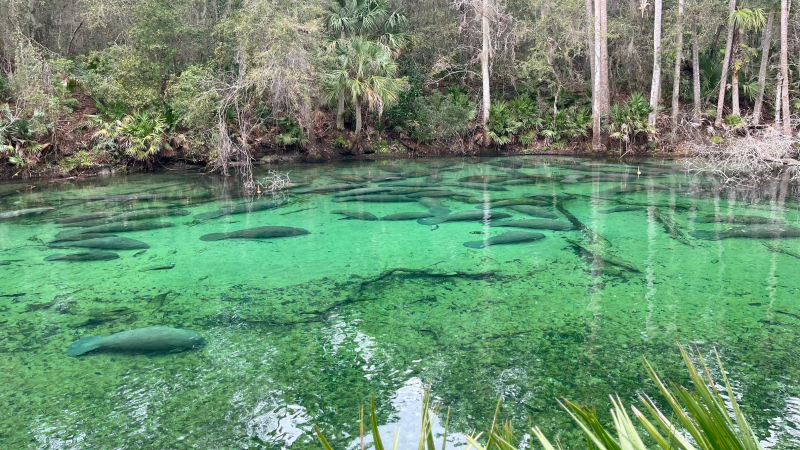Are manatees endangered? Here's the current conservation status of the marine mammal.
Spanning around 10 feet in length and weighing 1,000 pounds on average, manatees are the gentle giants of water. In some cases, the "sea cow" can grow up to 13 feet long and weigh 3,500 pounds, according to the Florida Fish and Wildlife Conservation Commission.
These docile marine mammals are categorized into three distinct species based on location, National Geographic reports. The North American east coast, including Florida, is home to West Indian manatee. The Amazonian manatee can be found in the Amazon River, while the African manatee lives along the west coast and rivers of Africa.
For years, manatee populations have been negatively impacted by many factors, including habitat loss. They are still at risk even today. Here's what to know about the mammal's current status.
Are manatees endangered?
The International Union for Conservation of Nature and the World Wide Fund for Nature classify manatees as "vulnerable." But the WWF says their status is "under debate."
The U.S. Fish and Wildlife Service downlisted manatees from "endangered" to "threatened" in 2017.
Major threats to manatee populations include poor fishing practices, boat collisions, habitat loss and pollution, according to the WWF.
Manatees are susceptible to bycatching, or when fishermen unintentionally catch something in their nets. This can injure or kill marine life. Manatees also live in shallow coastal areas and move slowly, making them more likely to be hit by watercraft.
ICYMI:About 1,000 manatees piled together in a Florida park, setting a breathtaking record
How many manatees are left?
Last fall, the manatee population in Florida was estimated at 8,350 to 11,730, based on an assessment from 2021 to 2022.
The global population of manatees is estimated to be at a minimum of 13,000, according to the U.S. Fish and Wildlife Service.
Report:As many as 11,730 manatees remain in Florida, despite famine from seagrass loss
What is the lifespan of a manatee?
The average lifespan of a manatee in the wild is 40 years, National Geographic reports.

Just Curious for more? We've got you covered
USA TODAY is exploring the questions you and others ask every day. From "What do turtles eat?" to "Do fish drink water?" to "Do sharks have bones?" − we're striving to find answers to the most common questions you ask every day. Head to our Just Curious section to see what else we can answer.
Disclaimer: The copyright of this article belongs to the original author. Reposting this article is solely for the purpose of information dissemination and does not constitute any investment advice. If there is any infringement, please contact us immediately. We will make corrections or deletions as necessary. Thank you.







